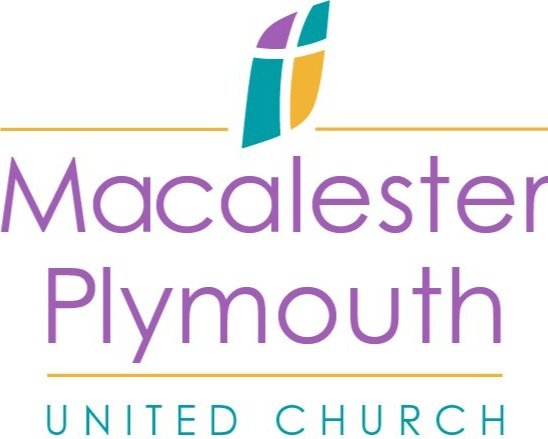Racial Justice
Racial Justice Stewards
In March of 2021, Macalester Plymouth United Church began training Racial Justice Stewards. We work with Marie Michael Scott Flemming from AMS Consulting, a Twin Cities based consulting firm that works with organizations surrounding diversity, equity, and inclusion, to tailor this training to our unique steward team, help better connect and align our church’s racial justice efforts, and bring embodied equity experiences to the larger congregation on a regular basis.
20 members of our congregation who are involved in different aspects of church life are engaging in embodied equity training, and commit to continuing this work over the next five years with our church and wider community. This team is developing a shared language and approach to embodying equity, grounded in practice and in faith, that will define and guide equity and justice work at MacPlymouth moving forward.
What is embodied equity?
Embodied equity is being in the daily practice of living and acting in ways that are equitable: Rather than talking about it and aspiring towards it, the way you talk and interact with others illustrates equity. The policies and practices of the church ARE equitable.
How do we achieve embodied equity?
Our trainers will introduce us to somatics. Somatic awareness and practice allows us to notice how we actually show up, and what our default reactions are in different moments. We can, then, consider if those actions are equitable and if they are effective in creating an inclusive environment. And if not, we can practice actions that are: learning to shift our behavior and respond out of our best selves, rather than reacting out of stress or habit in ways that don't serve us. Over time, this allows us to live (embody/be) equity rather than just talk about it.
What is the commitment of a Racial Justice Steward?
Ongoing Development. The Racial Justice Stewards will commit to embodying equity in their lives and work--meaning that they have taken or will take the Intercultural Development Inventory assessment; they are working on their own intercultural competence development plan; and they are willing to put in the extra work to practice into embodying equity both individually and collectively.
To contact a member of the Racial Justice Stewards or find out more about the racial justice work at MPUC, please email MPUCEngage@gmail.com.
Our Peace Pole
Did you know that we have an international Peace Pole outside our main entry? It was placed there about twenty years ago as our church grappled with our country’s march to war in Iraq and Afghanistan. It says “May Peace Prevail on Earth” in eight languages. However, in recent years, the Dakhota plate had disappeared. To get it replaced was not as simple as translating English words.
What does peace mean? Is it just the absence of war or conflict? What do we want when we say “may it prevail”? Is this simply a bunch of lofty words we utter to feel better about the injustice in the world? Our neighborhoods? What does this sign mean in the face of unresolved and ongoing injustices? It’s time to take a hard look at questions such as these as we move forward in our discernment to counter racism as a church community.
As such, getting this language translation became a learning opportunity. Dakhota elder and language teacher Barry Hand authenticated the wording: Unci maka akan wodakhota unkagapi kte. Not simply a word-for-word translation, this conveys the idea of honoring the sacredness of all creation and acting to restore and protect it. Re-examining our history is part of an authentic commitment to justice.
Macalester Plymouth Church stands on land removed from the Dakhota people in a succession of treaties. On Aug 5, 1851, the second of two U.S. Treaties was signed with Dakhota representatives at Oheyawahe (Pilot Knob) in Mendota Heights. These treaties surrendered the vast majority of Dakhota land in Minnesota—24 million acres—all Dakhota land in Minnesota except leaving for ten miles on both sides of the Minnesota river, from Lake Traverse near the South Dakota border to Mankato. The fall-out from this loss of land, livelihood and resources led to the U.S-Dakota War of 1862, the incarceration of 1600 Dakhota in a concentration camp at Fort Snelling, and the largest mass execution in U.S. history at Mankato. Gov. Ramsey issued a proclamation in 1863 that the Sioux Indians must be “exterminated or forever driven” from Minnesota (this stood until 150 years later when Gov. Dayton repudiated it!). Three small tribal agencies remain today.
In recognition of that land loss and its impacts, on this 171st anniversary of the treaty signing, we are reinstating Dakhota language to our peace pole, just one small step in committing ourselves, our church, to work for peace with justice.

